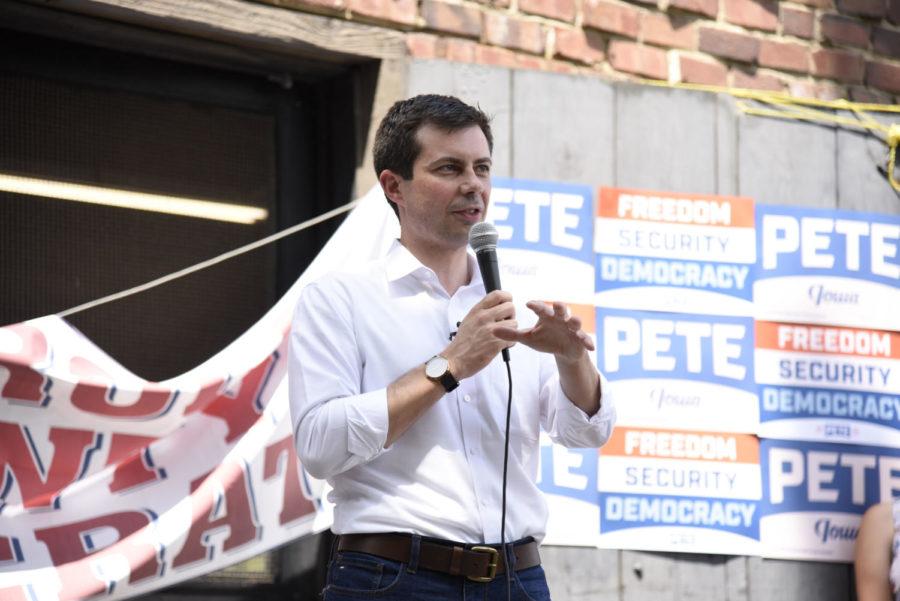Buttigieg to return to Iowa State
October 15, 2019
South Bend, Indiana, Mayor Pete Buttigieg is polling better in Iowa than any of the other early-voting primary states, and he will bring his campaign to Iowa State for the first time since February.
Buttigieg will host a town hall at 6:30 p.m. Wednesday in the Scheman Building.
Buttigieg is in his eighth year as mayor, having been easily re-elected to a second term — he was reelected with an 80 percent share of the vote in 2015. He is the first major presidential candidate who is openly gay, having come out several months before his re-election.
The mayor served as a lieutenant in the U.S. Navy Reserve from 2009 to 2017 and took a seven-month leave during his term as mayor when he was deployed to Afghanistan.
Among the focuses of Buttigieg’s campaign is education. The mayor has said he supports “debt-free” public college for students that come from lower-income families.
Speaking in September at the Iowa Citizens for Community Improvement Action’s presidential People’s Forum, Buttigieg said he is not in favor of universal “free college” because he is not comfortable “subsidizing the children of billionaires to go to college.”
Climate change is among the other focuses of Buttigieg’s campaign, and it is seems to be one of the single-most important political issues for younger voters.
“I think climate change is a moral issue,” Buttigieg said in an MSNBC interview. “I think as long as we’re transparent about our own beliefs and motivations, we should open up every door we can find to get toward action on this issue.”
According to the latest YouGov poll of likely Iowa Democratic caucusgoers, Buttigieg is in fourth place with 14 percent support, behind Sen. Bernie Sanders with 21 percent, Sen. Elizabeth Warren with 22 percent support and former Vice President Joe Biden, also with 22 percent support. In order to be viable and receive delegate equivalents in a precinct caucus, a candidate needs to receive 15 percent support in a given precinct.

















